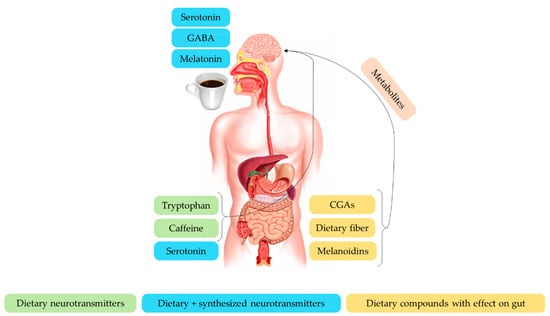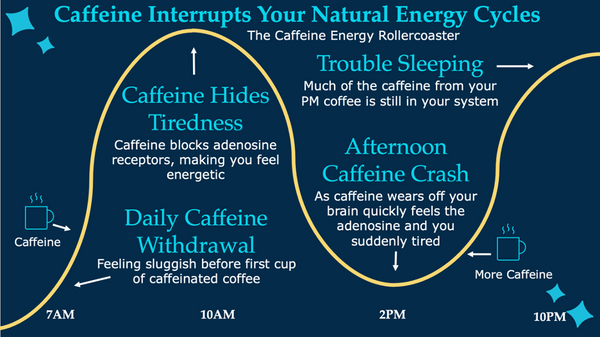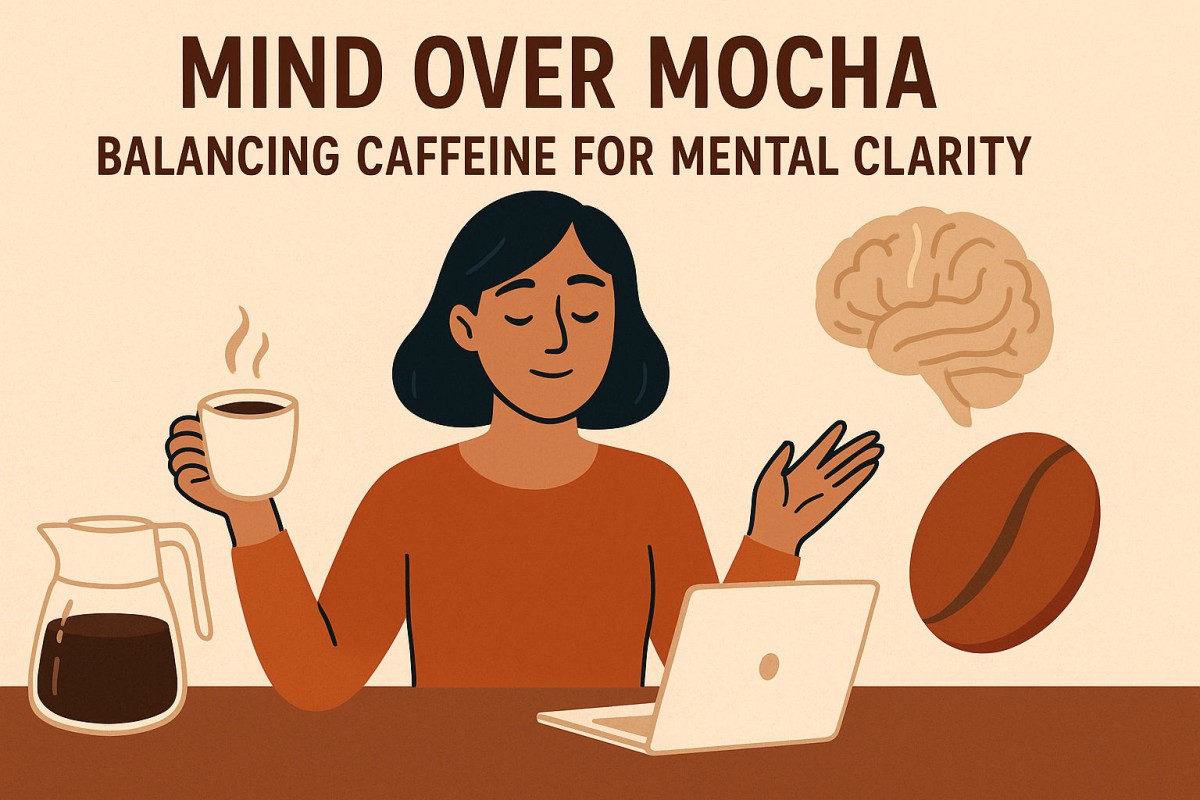Coffee can be considered an essential part of everyone's daily routine that helps to maintain concentration and provide temporary relief and enthusiasm for carrying out day-to-day activities. Consuming caffeine in large quantities can make an individual feel anxious, agitated, and exhausted over a longer period.
Understanding How Caffeine Influences the Brain?
❖ Caffeine responds by disrupting the function of a brain chemical called adenosine that generally helps people to sleep better, and when it’s functioning, it gets blocked, which causes the brain to release dopamine and adrenaline, which can make individuals more focused and attentive.
❖ Caffeine plays a role in slowing down the feeling of tiredness, and once its effect has stopped, that can lead people to experience burnout and feel frustrated. 
The Impact of Timing on Caffeine’s Effects
❖ Many scientific studies and professional experts recommend consuming 3-4 cups of coffee per day, which equals 400 mg of caffeine, as it can vary by different tolerance levels. It is also advised to not consume caffeine at least 6 hours before sleep time.
❖ During morning hours between 6 a.m. and 9 a.m., as our body releases high levels of cortisol, a hormone that helps to regulate sleep patterns. Drinking coffee may decrease the effectiveness of its functioning.
❖ Mid-morning can be considered as the ideal time to consume coffee, as stress hormone levels get lower and make caffeine effects more beneficial by providing a balanced amount of energy.
❖ Afternoon coffee can remain in the body for hours and disturb sleep schedules.
❖ During the evening hours, it is helpful to consume herbal tea, milk, or water instead of strong coffee.

Simple Ways to Stay Mentally Clear and Peaceful
❖ It is suggested to avoid consuming coffee on an empty stomach, as eating something first can help to reduce gastrointestinal issues and energy imbalances.
❖ Drinking cups of water for every caffeine intake and avoiding eating too much sugary content can sustain mental focus over longer periods.
❖ Maintaining proper sleep habits can serve as a natural brain refresher to keep a fresh mind.
Health-Conscious Alternatives to Traditional Coffee
❖ Green tea or matcha contains a lesser amount of caffeine and consists of L-theanine that makes an individual more alert without the edgy feeling.
❖ Golden Milk, or Turmeric Latte, is infused with anti-inflammatory compounds that relax the body and mind.
❖ Chicory coffee is also found to be supportive for those who are trying to reduce their coffee consumption.
❖ Adaptogenic coffee blends that are rich with traditional herbs such as ashwagandha or lion’s mane mushroom to decrease tension and promote healthy brain activity. 
Mindful Coffee: A New Way to Sip and Savor
❖ Using pour-over or French press methods provides a slower process of making coffee that helps to recognize the importance of the whole process.
❖ Making coffee that is infused with vitamins, collagen, and nootropics to improve concentration without using additional methods.
❖ Choosing decaf for evening drinks and mixing regular coffee with decaf to provide neutral flavor.
❖ Using smartwatches or health apps to track the coffee consumption on a daily basis.
Conclusion
Caffeine helps to improve memory retention, which can lead to enhanced response time in many critical situations. Its benefits all depend upon the number of doses taken, as too little may not show significant effects and too much can result in unfavorable outcomes. There are some strategies to follow that can help to experience the benefits of caffeine in a healthy way, such as taking coffee with balanced meals, consuming it before any demanding tasks, engaging in mindfulness activities, and considering its alternatives for modifying caffeine intake consciously and reducing overdependence on it.
